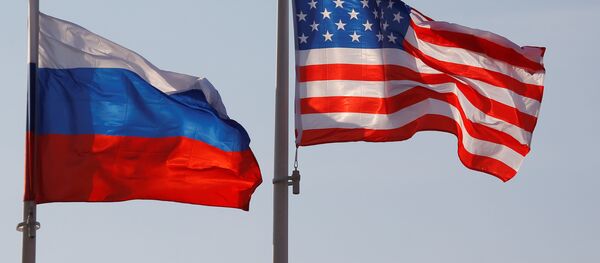The Russian Foreign Ministry said Saturday that the planned search of Russian diplomatic compounds in the US in the absence of Russian officials was an "unprecedented, aggressive move," adding that Russia reserves the right to reciprocate.
The Ministry summoned Anthony Godfrey, the minister-counselor for political affairs at the US Embassy in Moscow, to hand him a formal note of protest over US authorities' plans to search Russian diplomatic properties and the apartments of its employees in the US.
Commenting on the growing diplomatic scandal between the two powers in a punchy editorial for RIA Novosti, Radio Sputnik contributor Vladimir Filippov wrote that the conclusion from all this was obvious: Russian-American relations aren't merely cooling – they're falling off a mountain, and even powerful braking forces of traditional diplomacy can't stop the avalanche.
Keeping the San Francisco fiasco in mind, the journalist said that it wasn't exactly clear what Moscow should make of President Trump's latest comments about the need for good relations, which came just days before the order to close the Russian Consulate.
What's not clear, according to Filippov, is how the president's words square with the diplomatic war now in progress between Russia and the United States. Noting that some sort of convoluted 'nothing personal, just business' mentality may be at play, the commentator suggested that the more likely scenario was that 'Trump's left hand isn't fully aware of what his right hand is doing,' figuratively speaking.
"It's not enough that Congress is filled with enemies, ready to trip Trump up via impeachment at any convenient moment; the State Department too is playing a strange game. Tillerson says one thing, Trump something else."
"However, Trump himself is also to blame," the commentator added. "Many people may soon stop taking him seriously altogether."
Unfortunately, Filippov noted, all these conflicts inside Washington itself have a direct impact on Russia. "If one looks closely, it becomes clear that the US establishment defends its policy and interests in the world via two methods. The first is obvious and quite effective, and consists of arrogant diktat, disregard for legal and ethical norms, defamation and brute force. Does it help? Sure, but does't always work."
In Russia's case, both methods are used. "Occasionally this brings local victories; more often it does not. A smart politician would search for a third policy." Unfortunately, according to Filippov, most US politicians haven't heard about Hegel's famous triad (thesis, antithesis, synthesis). "They simply consider themselves to be the smartest, and that's it." Accordingly, the diplomatic avalanche will continue, Trump will make his own statements, and the diplomatic war will continue…"
"Some may say that [Moscow] have to do something to stop this madness," the commentator wrote. "I ask: why us? For the sake of breaking out of an impasse? Politics is an art form very similar to the sport of boxing, so beloved by the Americans. You miss a blow, you don't punch back, you lose. Then, it's no longer diplomatic boxing, but a farce involving a boxer and a whipping boy."
Accordingly, Filippov stressed that all that's left for Moscow is to follow the rules of boxing – to hold the blows and respond, blow by blow.
"These are the realities of geopolitics. The US and Russia can never be brothers for life, but it would be nice to have normal, steady relations with our neighbors. As the popular Russian saying goes: 'a close neighbor is better than distant family'. Therefore, one can only hope that the Americans will somehow dial down their ego a little, and look in the mirror, and only then put the blame on others. But that's a different Russian proverb…"




